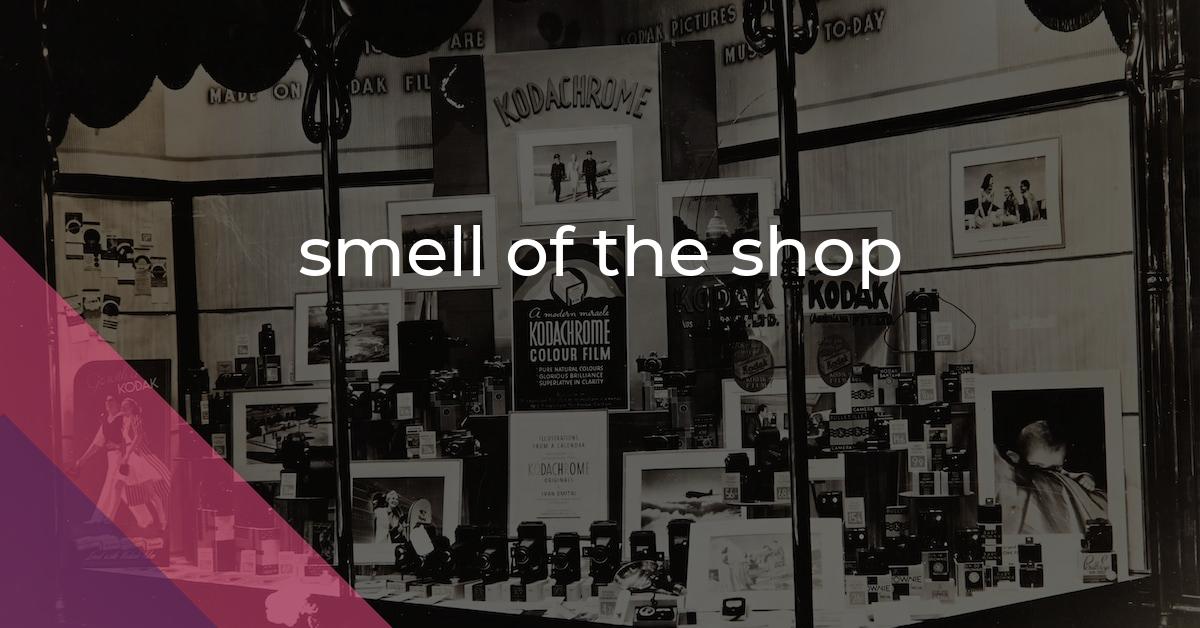smell of the shop: Idiom Meaning and Origin
What does ‘smell of the shop’ mean?
The idiom "smell of the shop" refers to the distinct scent or atmosphere associated with a particular place, such as a workplace or a professional environment. It implies familiarity and being experienced in a specific field.

Idiom Explorer
The idiom "the nose knows" means that one's sense of smell can accurately detect or recognize something, even when other senses or evidence may be lacking.
The idiom "tell apart" means to distinguish or recognize the difference between two or more similar things or people.
The idiom "taste of one's own poison" means to experience the negative consequences of one's own harmful actions or words.
The idiom "take out" means to remove something or someone from a particular place or situation.
The idiom "take one's leave" means to say goodbye or depart from a place or a person.
The idiom "take a walk" means to leave a place or situation, usually as a way to calm down or clear one's mind.
The idiom "sweet smell of success" refers to the feeling of accomplishment or triumph, often associated with achieving one's goals or becoming successful in a particular endeavor.
An idiom meaning to leave or depart, often used to describe ending a project or leaving a place quickly.
Meaning: To take time to appreciate and enjoy the small and beautiful moments in life.
The idiom "stink on ice" means something that is extremely unpleasant or undesirable. It suggests a strong, offensive odor and emphasizes the negative quality of the situation or thing being described.
Perfumed Mysteries of the Shop
The idiom "smell of the shop" has its roots in the realm of commerce and business. It is used to convey a sense of familiarity or expertise in a particular field. When someone "smells of the shop," it indicates that they have spent a considerable amount of time in a specific profession or industry, and have gained a deep understanding and knowledge of it.
This idiom draws an analogy between the sensory experience of smell and the impression one gets from being in a shop or store. When entering a shop, one is greeted by a unique combination of scents that are often distinct to that particular establishment. Over time, these scents become associated with the shop, creating a sense of familiarity and association in the minds of customers.
Similarly, when someone "smells of the shop," it suggests that they carry with them the distinct qualities, expertise, and knowledge that come from being deeply involved in a certain trade or profession.
The idiom "smell of the shop" can be seen as an extension of the more well-known phrase "to know the business." In both cases, the underlying idea is that individuals who have spent a significant amount of time in a particular industry or profession possess a unique understanding and insight that can only be acquired through direct experience.
When someone "smells of the shop," it implies that they have become intimately familiar with the intricacies and nuances of their chosen field.
It is worth noting that the idiom "smell of the shop" can be used both in a positive and negative context. In a positive sense, it implies that an individual's expertise and knowledge make them reliable and trustworthy in their field. It suggests that they have honed their skills and can be relied upon for their expertise.
On the other hand, when used negatively, the idiom can imply a narrow-mindedness or a lack of exposure to ideas and perspectives outside of one's particular industry.
The idiom "smell of the shop" resonates with a wide range of professions and industries. It can be applied to various domains, such as technology, finance, medicine, or even the arts. In each case, the idiom captures the essence of accumulated knowledge, experience, and familiarity that one gains from immersing oneself in a specific field over time.
Ultimately, the idiom "smell of the shop" reflects the importance of expertise and understanding that comes from deep engagement with a particular profession or industry. It conveys a sense of authority, reliability, and skill that is derived from direct experience and immersion in a specific field.
The idiom "smell like a rose" is often used to describe a situation or person that appears to be perfect or pleasant on the surface, but may actually have some underlying issues. It is a metaphorical expression that suggests an outward appearance of beauty or success, despite potential flaws or problems.
This idiom can be related to the concept of the "smell of the shop" in that it highlights the importance of looking beyond surface-level impressions. Just as the idiom "smell of the shop" emphasizes the value of expertise gained through direct experience, "smell like a rose" reminds us not to be fooled by appearances.
While someone may seem to "smell like a rose" at first glance, it is important to dig deeper and examine the true qualities and characteristics that lie beneath the surface. This can be applied not only to individuals, but also to businesses, products, and situations.
The idiom serves as a cautionary reminder to not be swayed solely by superficial qualities, but to take the time to truly understand and evaluate the substance and essence of a person, thing, or situation.
The idioms "smell of the shop" and "smell like a rose" both offer insights into the complexities of perception and understanding. "Smell of the shop" emphasizes the value of expertise gained through direct experience, while "smell like a rose" reminds us to look beyond surface-level appearances and evaluate the deeper qualities and characteristics of a person or situation.
Example usage
Examples:
- She has been working in the fashion industry for so long that she still has the smell of the shop on her.
- After spending the whole day in the bakery, I could smell the shop on my clothes.
- Even though he retired years ago, he still carries the smell of the shop with him wherever he goes.
More "category" idioms



